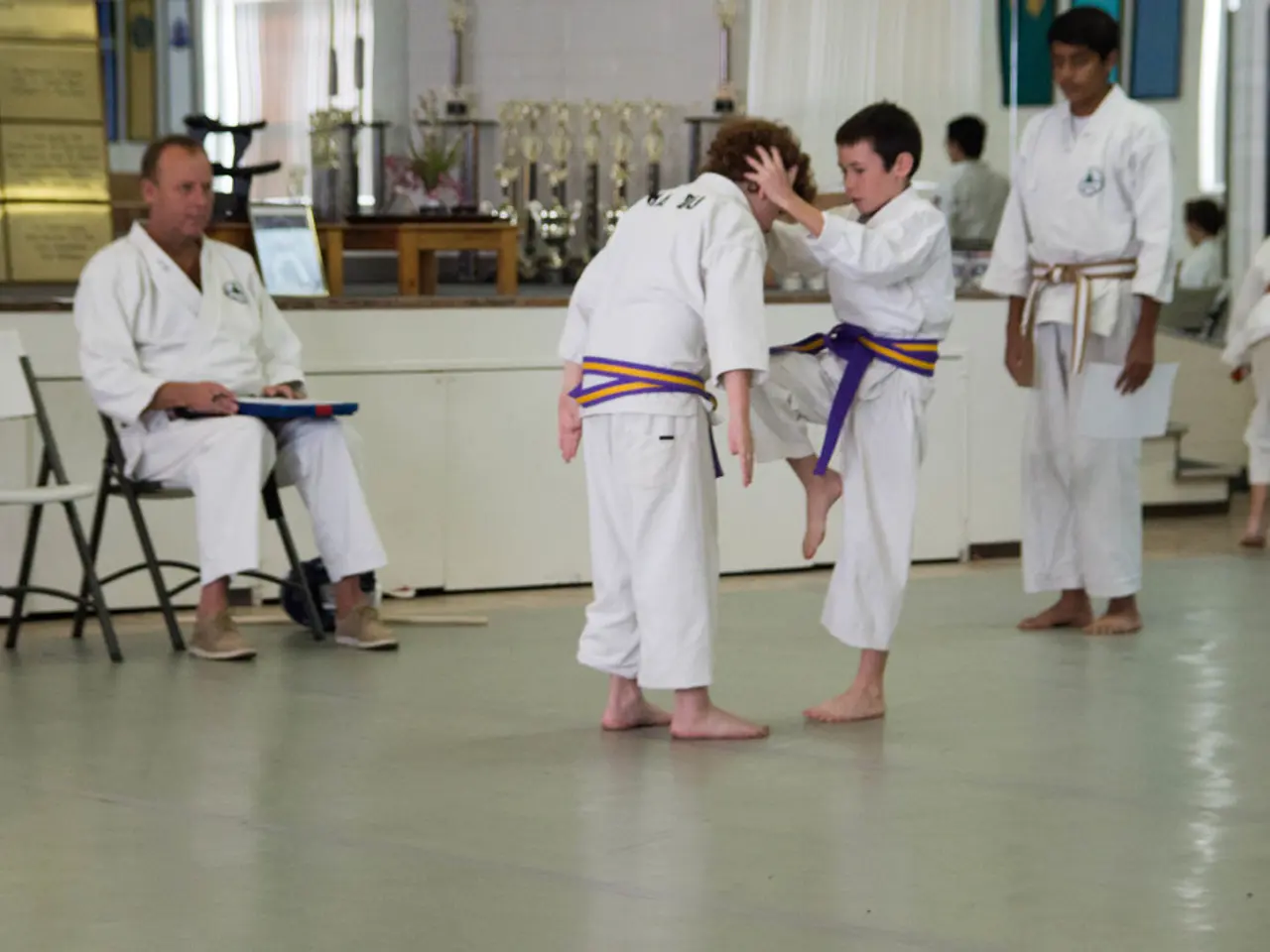Self-Improvement Strategies to Propel Your Progression
In the pursuit of self-improvement and achieving one's full potential, personal development plays a crucial role. This process involves enhancing skills, qualities, and life experiences, with the ultimate goal of reaching one's full potential.
Self-reflection is a key component of personal development. Regular self-reflection can be practiced through journaling, active self-awareness cultivation, and seeking constructive feedback to identify strengths and areas for growth. Maintaining a "wins journal" to celebrate successes also reinforces positive growth.
Expanding perspectives is another essential aspect of personal development. This can be achieved by intentionally exposing oneself to new experiences such as trying new cuisines, reading diverse genres, engaging with different viewpoints, and practicing perspective-taking exercises. This nurtures openness and intellectual curiosity.
Practicing affirmations supports building confidence and self-esteem. Affirmations are positive statements repeated to reinforce helpful beliefs and attitudes, boosting confidence, resilience, and motivation. This can be reinforced through coaching or mentoring relationships offering encouragement and accountability.
Improving soft skills is crucial for personal and professional success. This includes enhancing communication, emotional regulation, managing energy, learning to say "no," active listening, and creative problem-solving. Courses, reading, and experiential learning help develop these traits.
Setting goals efficiently employs the SMART criteria (Specific, Measurable, Achievable, Relevant, Time-bound) and breaking down large objectives into smaller steps. Habit stacking and implementation intentions ("If X happens, then I will do Y") promote consistency.
Adopting a growth mindset means embracing lifelong learning, leaning into discomfort, and viewing challenges as opportunities to improve. This mindset leads to sustained personal growth.
Building better relationships is crucial for personal growth. This can be achieved through active listening, exhibiting empathy, being vulnerable, collaborating, giving emotional support, bonding through activities, and practicing self-care.
Practicing self-care involves prioritizing oneself, managing stress through deep breathing and steadying the mind, physical activity, and knowing when to say “no” to protect personal boundaries.
Finding accountability partners—coaches, mentors, or trusted peers—provides motivation, constructive feedback, and regular check-ins that significantly increase goal achievement and personal growth commitment.
These strategies integrate evidence-based techniques for sustainable personal development, emphasizing consistency, reflection, social support, and self-directed learning. Personal development not only strengthens relationships by building communication skills, empathy, and emotional intelligence, but also leads to improved well-being and mental health through activities like journaling, meditation, and self-reflection.
[1] MindTools (2021). Personal Development: 30 Proven Strategies for Success. [Online] Available at: https://www.mindtools.com/pages/main/newMN_96.htm
[2] Forbes Coaches Council (2020). 13 Proven Strategies For Personal Development. [Online] Available at: https://www.forbes.com/sites/forbescoachescouncil/2020/03/31/13-proven-strategies-for-personal-development/?sh=5340072d6260
[3] Psychology Today (2020). Personal Development Strategies: 12 Tips for Success. [Online] Available at: https://www.psychologytoday.com/us/blog/the-self-different/202006/personal-development-strategies-12-tips-success
[4] The Balance Careers (2021). How to Improve Soft Skills. [Online] Available at: https://www.thebalancecareers.com/how-to-improve-soft-skills-2061049
[5] Verywell Mind (2021). Personal Development: How to Grow and Improve Yourself. [Online] Available at: https://www.verywellmind.com/personal-development-how-to-grow-and-improve-yourself-4174864
- Emotional intelligence is vital in personal development, as it helps individuals recognize, understand, and manage their own emotions and those of others, which enhances relationships and communication skills.
- Creativity can be nurtured through various means, such as brainstorming, engaging in art or music, seeking diverse perspectives, and practicing open-mindedness, which fosters problem-solving abilities and personal growth.
- Motivation often derives from setting personal, achievable, relevant, and time-bound (SMART) goals, breaking them down into smaller steps, and finding accountability partners who offer encouragement, feedback, and regular check-ins.
- Integrity is essential for personal development, because it fosters trust and develops a strong moral compass, leading to improved self-esteem, teamwork, and leadership capabilities.
- Problem-solving skills can be enhanced through learning, applying critical thinking, practicing adaptability, and seeking constructive feedback.
- Adaptability is necessary for personal development, as it teaches individuals to be flexible, learn from experiences, and evolve in response to changes, which advances career growth and personal-growth.
- Goal setting, self-care, and ongoing education and self-development activities like reading, coaching, and journaling promote personal growth, well-being, and mental health, empowering individuals to reach their full potential in life.




